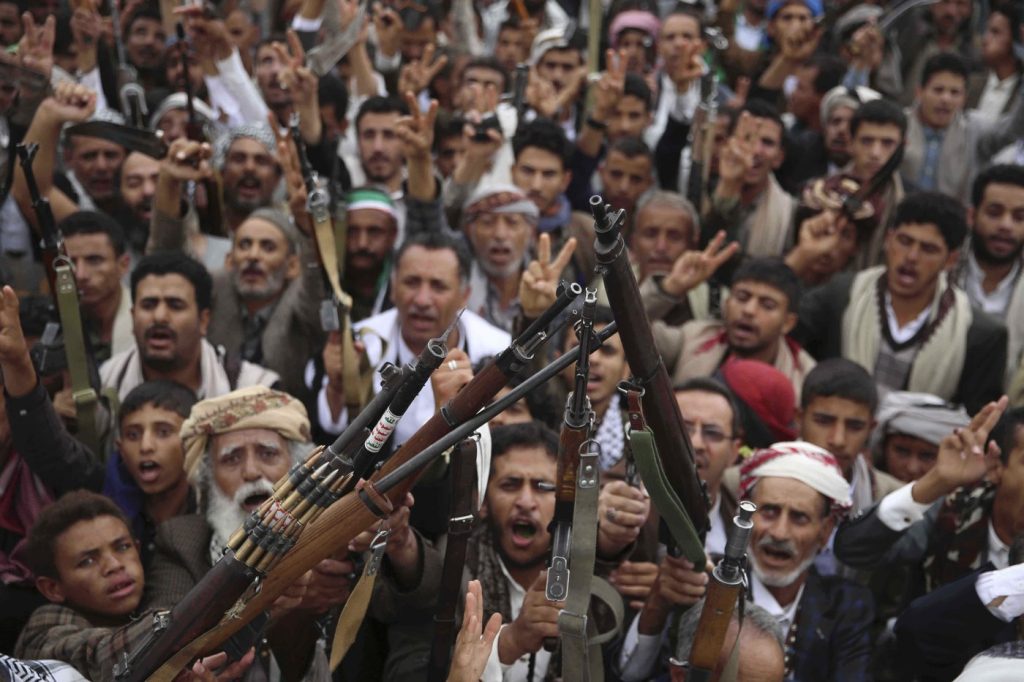DUBAI, United Arab Emirates (AP) - In a significant escalation, Yemen's Houthi rebels have launched a violent campaign targeting ships in the Red Sea, leading to the sinking of two vessels and the deaths of several crew members. These attacks are part of the Houthis' ongoing warfare, reflective of the broader regional tensions exacerbated by the Israel-Hamas conflict.
The Houthis, who are members of Islam's minority Shiite Zaydi sect, have a storied history in Yemen, having ruled the country for a millennium until 1962. Following years of conflict with Yemen's central government, they captured the capital, Sanaa, in 2014, prompting a Saudi-led coalition to intervene in 2015 in an effort to restore the internationally recognized government. This conflict has resulted in more than 150,000 deaths and has created one of the world's gravest humanitarian crises.
Despite a ceasefire that technically ended in October 2022, some agreements and dialogue continued, such as prisoner exchanges and an invitation for Houthi representatives to high-level peace talks in Saudi Arabia. However, no lasting peace agreement has been reached, and violence remains prevalent.
The Houthis are significantly backed by Iran, which has been accused of supplying them with weapons, despite Tehran's repeated denials. The Houthis have emerged as a key faction in Iran's "Axis of Resistance," alongside groups like Hezbollah and Hamas. Following the Hamas attack on Israel on October 7, 2023, the Houthis' involvement became more pronounced, particularly as they conducted missile and drone strikes against commercial and military shipping in the region.
Recently, the rebels initiated a more aggressive series of attacks, primarily directed at merchant shipping in the Red Sea. These operations have been described as complex: armed rebels approach vessels and employ small arms, rocket-propelled grenades, and anti-ship missiles. This new strategy has reportedly led to the sinking of two ships, marking a new phase in their tactics.
These recent hostilities have notably disrupted trade routes in the Red Sea, typically valued at about $1 trillion in annual goods. The attacks on the vessels, known as the Magic Seas and the Eternity C, highlight the increased threat to commercial shipping and the reduced security capabilities vessels typically possess, lacking advanced defense systems against aerial and missile threats.
The Houthis framed their renewed campaign as a direct response to what they perceive as Israel's acts of aggression in Gaza, asserting their actions as part of an effort to support Palestinian interests. They announced that their operations would persist until concrete military actions were taken to counteract Israel's presence and influence in the region.
Additionally, the Houthis appear to have leveraged these attacks to bolster their reputation domestically, as economic conditions deteriorate in Yemen. Public dissatisfaction with their governance has been growing, making these missile campaigns an avenue to reinforce their authority and demonstrate military capability amidst internal turmoil.
In summary, as the Houthis escalate their military actions with sophisticated assaults on shipping, both international and domestic factors influence their strategy. The ongoing instability in Yemen, coupled with external pressures arising from U.S. and Israeli operations in the region, indicates that the situation remains complex and fraught with potential for further conflict.











